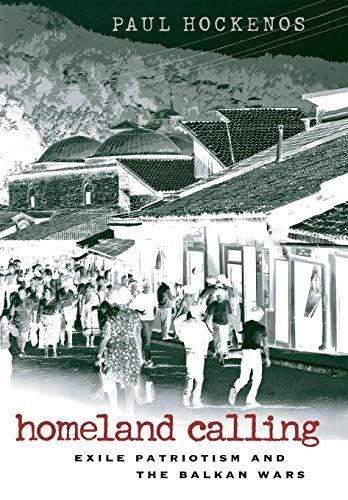
Homeland Calling Exile Patriotism and the Balkan Wars
Over the last ten years, many commentators have tried to explain the bloody conflicts that tore Yugoslavia apart. But in all these attempts to make sense of the wars and ethnic violence, one crucial factor has been overlooked—the fundamental roles played by exile groups and émigré communities in fanning the flames of nationalism and territorial ambition. Based in the United States, Canada, Europe, Australia and South America, some groups helped provide the ideologies, the leadership, the money, and in many cases, the military hardware that fueled the violent conflicts. Atypical were the dissenting voices who drew upon their experiences in western democracies to stem the tide of war. In spite of the diasporas' power and influence, their story has never before been told, partly because it is so difficult, even dangerous to unravel. Paul Hockenos, a Berlin-based American journalist and political analyst, has traveled through several continents and interviewed scores of key figures, many of whom had never previously talked about their activities. In Homeland Calling, Hockenos investigates the borderless international networks that diaspora organizations rely on to export political agendas back to their native homelands—agendas that at times blatantly undermined the foreign policy objectives of their adopted countries. Hockenos tells an extraordinary story, with elements of farce as well as tragedy, a story of single-minded obsession and double-dealing, of high aspirations and low cunning. The figures he profiles include individuals as disparate as a Canadian pizza baker and an Albanian urologist who played instrumental roles in the conflicts, as well as other men and women who rose boldly to the occasion when their homelands called out for help.